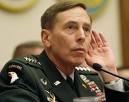Monday
Mar292010
US-Israel: The Big Fight Within Obama Administration --- Ross v. Mitchell, NSC v. State Department
 Monday, March 29, 2010 at 10:59
Monday, March 29, 2010 at 10:59  DENNIS ROSS
DENNIS ROSSLaura Rozen of Politico returns to top inside reporter form with this piece on the division over Israel policy within the Obama Administration, in particular between Dennis Ross of the National Security Council and Obama's special envoy for the Middle East, George Mitchell.
Yet read this carefully and you'll pick up an even bigger story. This doesn't look like just Ross v. Mitchell but a battle between the National Security Council and the State Department. Note the strength of the anti-Ross feeling amongst the unnamed officials and ask yourself, "Where are their desks in Washington?"
Then note the quick defense of Ross and dismissal of any tension by his NSC bosses, as well as the "other contacts", also likely to be in the NSC, who defend Ross's Israel line as part of a sensible approach to the "big picture" of the Middle East and Iran.
This is the "inside" part of the headline tension between the US and Israeli Governments. Just as something will have to give --- and someone will have to lose --- in that context, so someone will have to suffer defeat, possibly to the point of resignation, within the Obama Administration. Whether that is Ross or Mitchell will say a lot for which agency gets the upper hand in the Administration's foreign policy, particularly on Israel-Palestine and on Iran.
Since Israeli Prime Minister Benjamin Netanyahu’s tense visit to the White House last week, an intense debate inside the Obama administration about how to proceed with Netanyahu to advance the Middle East peace process has grown more heated, even as Israeli officials are expected to announce they have reached some sort of agreement with Washington as soon as tonight.
Sources say within the inter-agency process, White House Middle East strategist Dennis Ross is staking out a position that Washington needs to be sensitive to Netanyahu’s domestic political constraints including over the issue of building in East Jerusalem in order to not raise new Arab demands, while other officials including some aligned with Middle East peace envoy George Mitchell are arguing Washington needs to hold firm in pressing Netanyahu for written commitments to avoid provocations that imperil Israeli-Palestinian peace talks and to preserve the Obama administration's credibility.
POLITICO spoke with several officials who confirmed the debate and its intensity. Ross did not respond to a query, nor did a spokesman for George Mitchell.
“He [Ross] seems to be far more sensitive to Netanyahu's coalition politics than to U.S. interests,” one U.S. official told POLITICO Saturday. “And he doesn't seem to understand that this has become bigger than Jerusalem but is rather about the credibility of this Administration.”
What some saw as the suggestion of dual loyalties shows how heated the debate has become.
[ROZEN UPDATE: NSC Chief of Staff Denis McDonough fiercely rejected any such suggestion. "The assertion is as false as it is offensive," McDonough said Sunday by email. "Whoever said it has no idea what they are talking about. Dennis Ross's many decades of service speak volumes about his commitment to this country and to our vital interests, and he is a critical part of the President's team."]
Last week, during U.S.-Israeli negotiations during Netanyahu’s visit and subsequent internal U.S. government meetings, the first official said, Ross “was always saying about how far Bibi could go and not go. So by his logic, our objectives and interests were less important than pre-emptive capitulation to what he described as Bibi's coalition's red lines.”
When the U.S. and Israel are seen to publicly diverge on an issue such as East Jerusalem construction, the official characterized Ross's argument as: "the Arabs increase their demands ... therefore we must rush to close gaps ... no matter what the cost to our broader credibility.”
A second official confirmed the broad outlines of the current debate within the administration. Obviously at every stage of the process, the Obama Middle East team faces tactical decisions about what to push for, who to push, how hard to push, he described.
As to which argument best reflects the wishes of the President, the first official said, “As for POTUS, what happens in practice is that POTUS, rightly, gives broad direction. He doesn't, and shouldn't, get bogged down in minutiae. But Dennis uses the minutiae to blur the big picture … And no one asks the question: why, since his approach in the Oslo years was such an abysmal failure, is he back, peddling the same snake oil?”
Other contacts [Editor's Note: almost certainly NSC officials] who have discussed recent U.S.-Israel tensions with Ross say he argues that all parties need to keep focus on the big picture, Iran, and the peace process as being part of a wider U.S. effort to bolster an international and regional alliance including Arab nations and Israel to pressure and isolate Iran.
This is an argument that presumably has resonance with the Netanyahu government. But at the same time, Arab allies tell Washington that Israeli construction in East Jerusalem inflames their publics and breeds despair and makes it hard for them to work even indirectly and quietly with Israel on Iran. They push Washington to show it can manage Israel and to get an Israeli-Palestinian peace process going that would facilitate regional cooperation on Iran.



